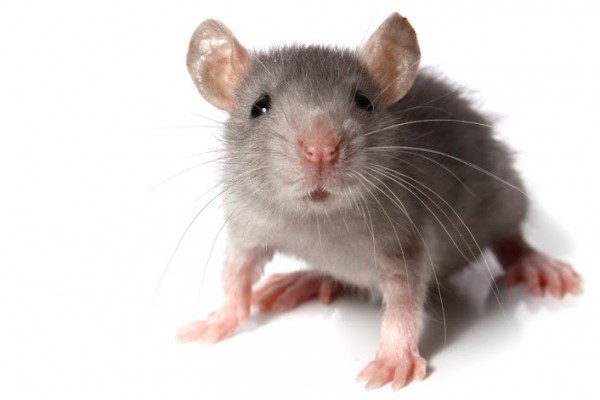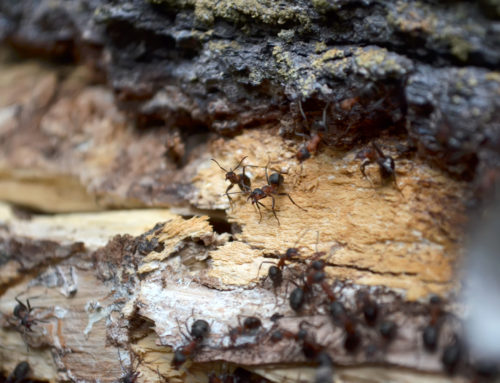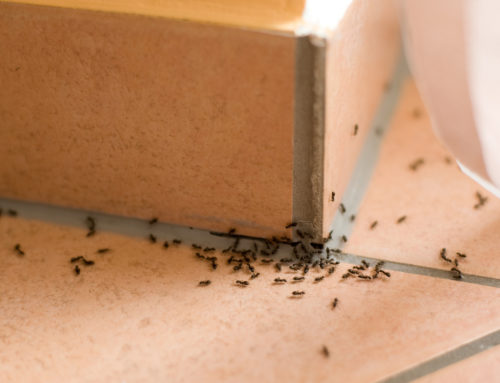Winter is approaching, and this is the time of year when mice seek refuge indoors after a hot summer with warm outdoor spaces to sleep. However, most homeowners know that one mouse can multiply quickly, and it’s best to get a handle on a mouse problem before it becomes a mice infestation.
If you’ve never had a mouse problem before, you might not even be on the watch for them or know what to look for. You might be wondering what some of the signs are, and how you catch a mouse problem before it gets too large. These tips can help you spot mice early and help you know what you can do to remove them before they start multiplying.
EARLY SIGNS OF MICE
Mice are curious little creatures, but they also know how to stay hidden. You may see one out exploring, but there’s also a good chance that you won’t catch a glimpse of any mice living in your house.
Instead, you’ll start to see little signs that you have unwanted guests. These signs include the following.
Droppings
You will first see mice droppings in places where mice can get to the food: the space around the trash can, the counter where you keep your breadbox or near the stove where some crumbs or drippings might have fallen. It’s also common to see droppings underneath the stove or inside a drawer where you might keep the paper.
Mouse droppings are dark and look very similar in size and shape to grains of rice. Don’t touch the droppings with your ungloved hand if you find them. Wipe them up and spray the surface down with disinfectant.
Noise
Mice may be good at staying out of sight, but they are not good at staying quiet, especially at night when they are actively collecting food and building nests. You might hear tiny sounds like rustling or scratching as a mouse gets into the food in the kitchen.
Even if you can’t find the mouse making the noise, take these sounds seriously. Have your home inspected by a pest control company if the sounds persist throughout the night over the course of a few days.
Chewed Items
Mice have teeth that always keep growing. They combat this growth by chewing, which wears down the teeth and keeps them at a desirable length. Mice also chew to help gather items for building nests.
At first, you might notice that corners of cardboard boxes are missing, or that the stack of envelopes you had in your kitchen have pieces missing from them.
Pet Behavior
If you have a dog or cat, they might be more alert to the presence of another animal in the house. Your dog may paw at the space under a couch or bark when he hears a mouse running in the walls. Some dogs will even keep mice away if they are taught to notice and kill mice.
The presence of these signs means that you need to take immediate action. Mice are much harder to control as their numbers increase, and their numbers can increase exponentially.
EARLY INTERVENTIONS FOR MOUSE INFESTATIONS
First, you need to make sure you set traps for mice. Mice can’t see very well, so they typically stay close to the walls and are more likely to run around the perimeter of a room than straight across. This way, they’re more likely to know where they are and not get lost. Your traps should follow this pattern to make setting them more successful.
Place the traps in areas where you have found droppings. Use a nutty bar or nut butter to set the trap, instead of cheese. Place the trap perpendicular to the wall so the mouse has an increased chance of setting it off.
While you may be interested in using poison to deal with mice, it’s actually best to leave that job to a professional. A pest control specialist will know how to use poison effectively but keep your family and your pets safe.
Next, you’ll need to make it more difficult for mice to get to the food in your home. Move everything to glass containers. Do not store cereal, oatmeal, bread, pasta or crackers in cardboard boxes or plastic bags or containers. Wipe down all counters after meals and use the vacuum to sweep the floor and clean out the crumbs from under the fridge and other appliances.
Finally, contact a pest control company to do an inspection. Even if you think you only have a single mouse, you want to make sure you’ve got them all. You’ll also want help sealing off your home. Mice and other pests can fit through tiny openings. Sealing your home prevents other mice from entering.
For more information, visit the experts at American Pest Control Inc.


![Most Common Ants in Illinois [And How to Get Rid of Them]](https://callamericanpest.com/wp-content/uploads/2022/08/iStock-1218994486-min-scaled-500x383.jpg)



